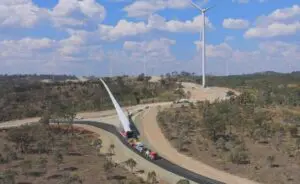
The Japanese automaker behind the world’s highest selling electric vehicle, the Nissan LEAF, is now offering its UK customers a packaged home solar, storage, smart control solution, as it pushes into the integrated clean energy market.
The offer, called Nissan Energy Solar, gives customers the option to add one or all components of its energy generation, management and storage package that the automaker claims can be combined to cut household electricity bills by up to 66 per cent – as well as charge their Leaf, of course.
Pricing for the fully integrated product package starts at £3,881, or just a sniff under $A7,000, based on a 4kW PV system and 6kWh storage system, and including supply and installation. That sounds like a very competitive price.
Already, the move by Nissan is being described as a bite at the Tesla cherry, where Elon Musk’s the focus has been on an electrified future, where houses and cars and powered by distributed renewables and battery storage.
In an interesting twist to the Nissan offer, however, customers will be offered the choice of a the new battery, supplied by UK outfit Eaton Energy Storage, or a second life batteries from a Nissan EV.
“This maximises the use of recyclable materials, for intelligent living and a more sustainable future,” Nissan said in a statement.
“Nissan Energy Solar is a complete system for home energy generation, management and storage,” said Nissan Europe’s head of EVs, Gareth Dunsmore, in a statement on Thursday.
“It enables UK homeowners to make significant savings on their household electricity bills, and become champions of sustainability and green technology.
“More than 880,000 people in the UK already use solar panels and this fully integrated solution brings a fresh opportunity to grow this number exponentially over the coming years.”
Will we see Nissan offer this in Australia? RenewEconomy asked the Australian arm of the auto maker, but had not heard back at the time of publication. Considering we are still waiting on the arrival of the new LEAF, however, Nissan Energy Solar Down Under may be a way off yet.
Note: This story is a restored version of the original which was lost in circumstances as yet unexplained by our web host company. Apologies if earlier comments are missing.










